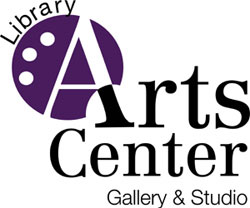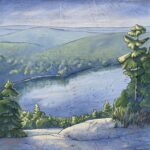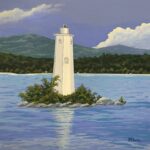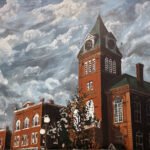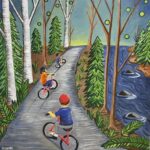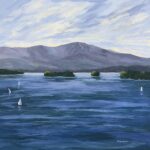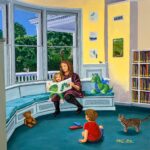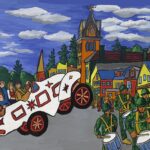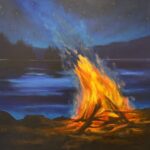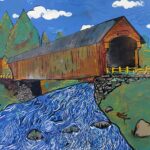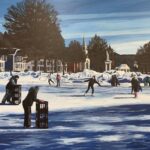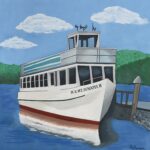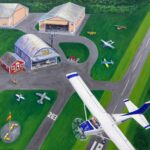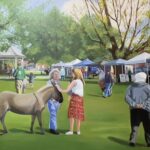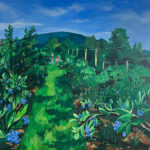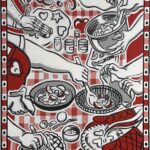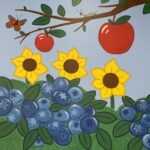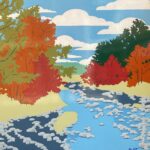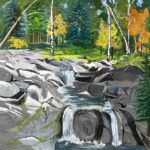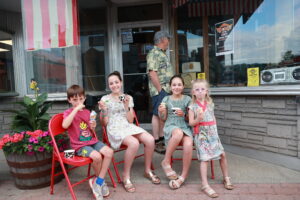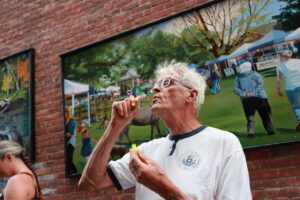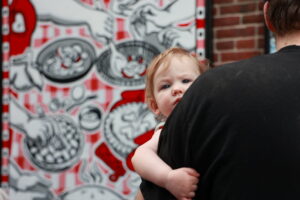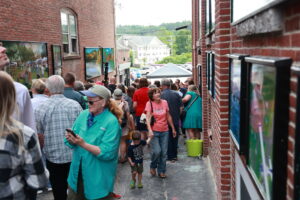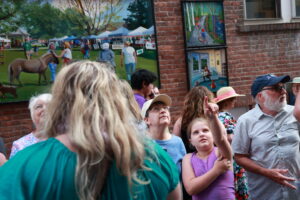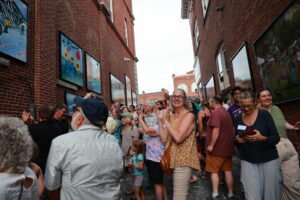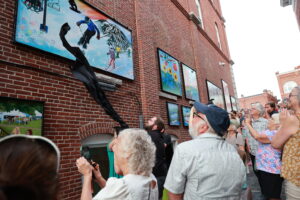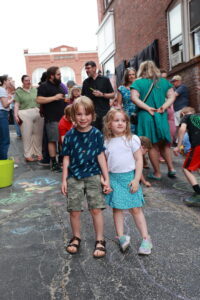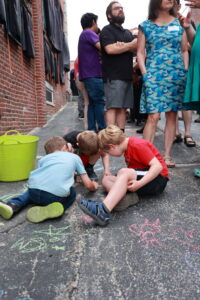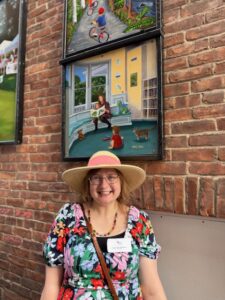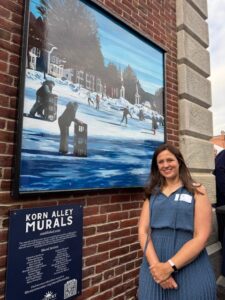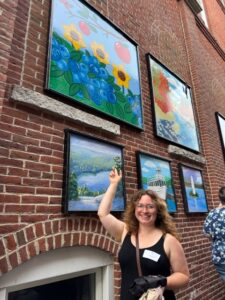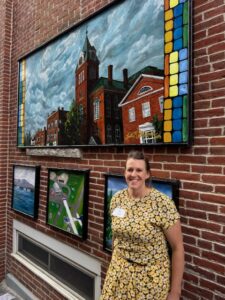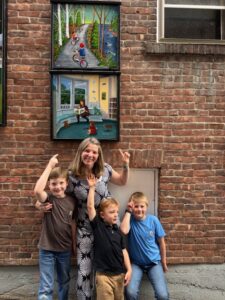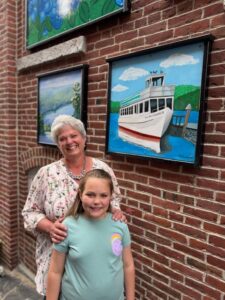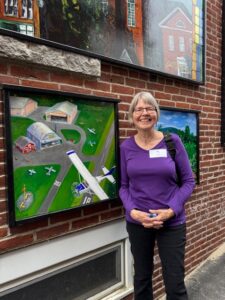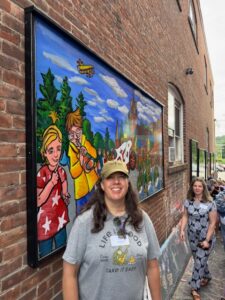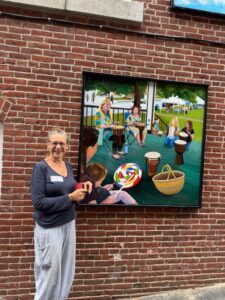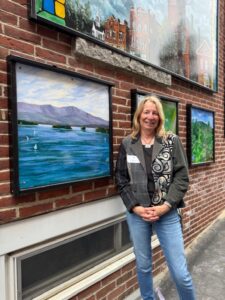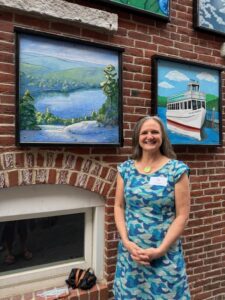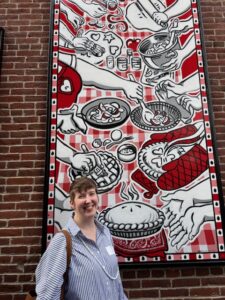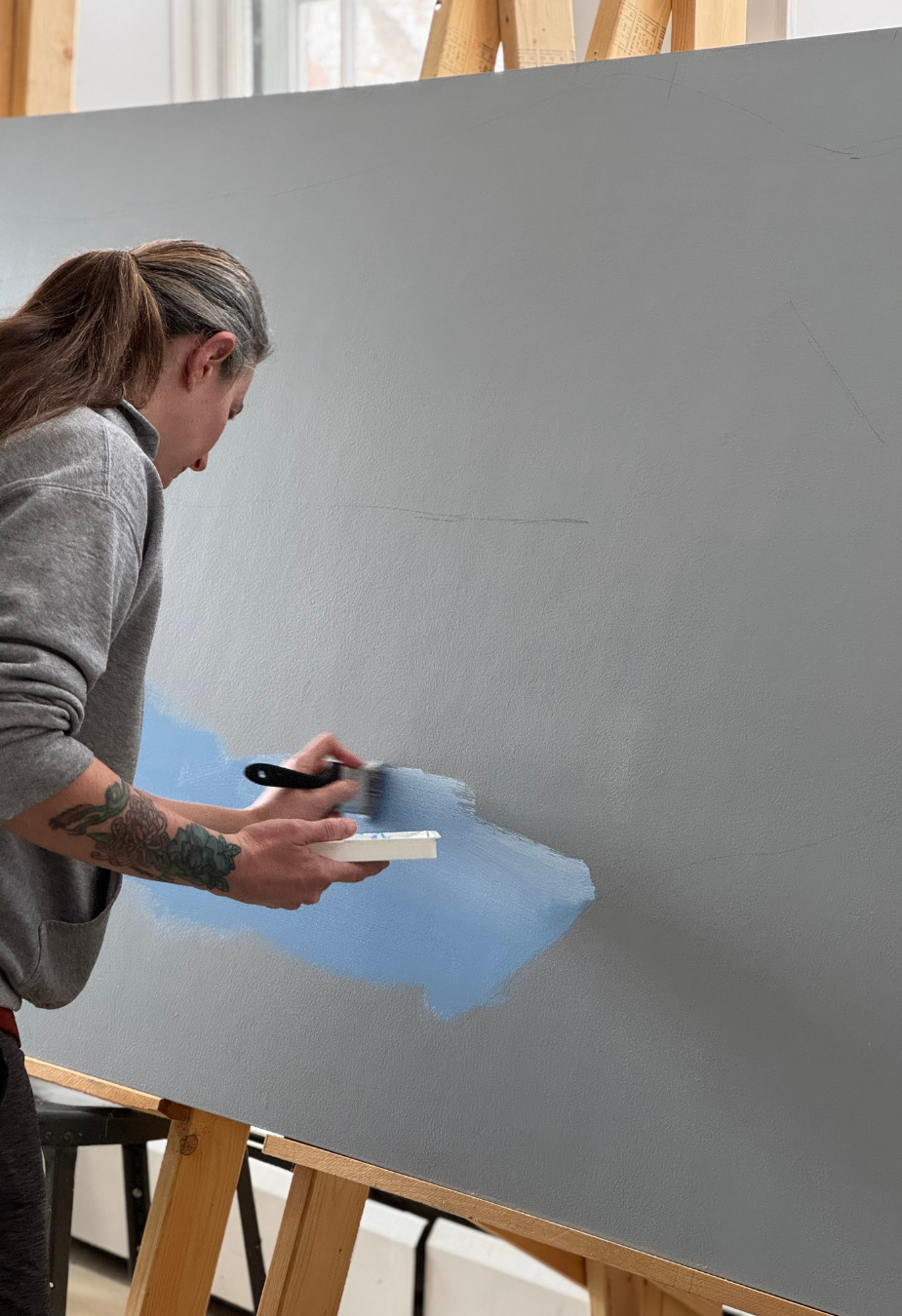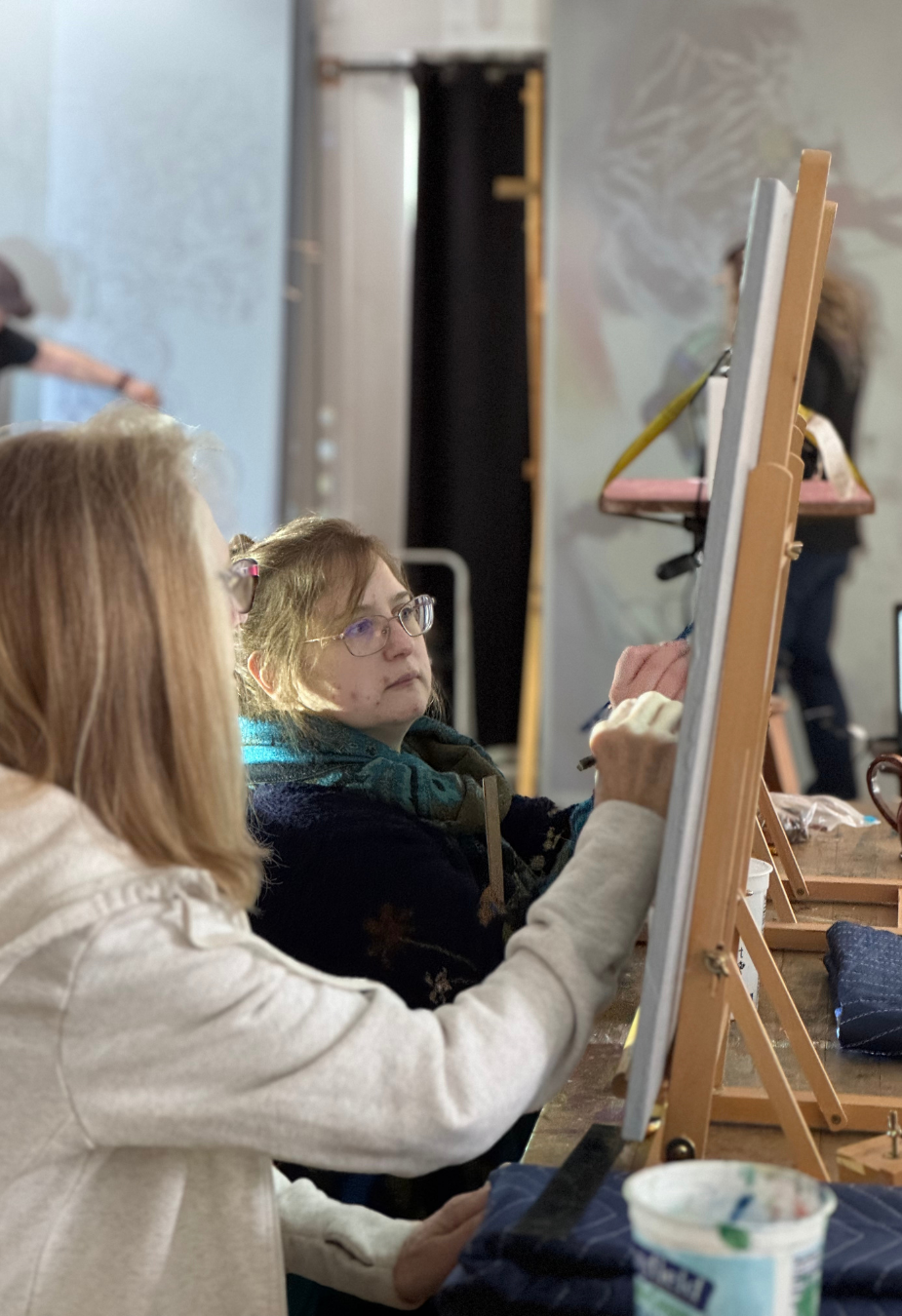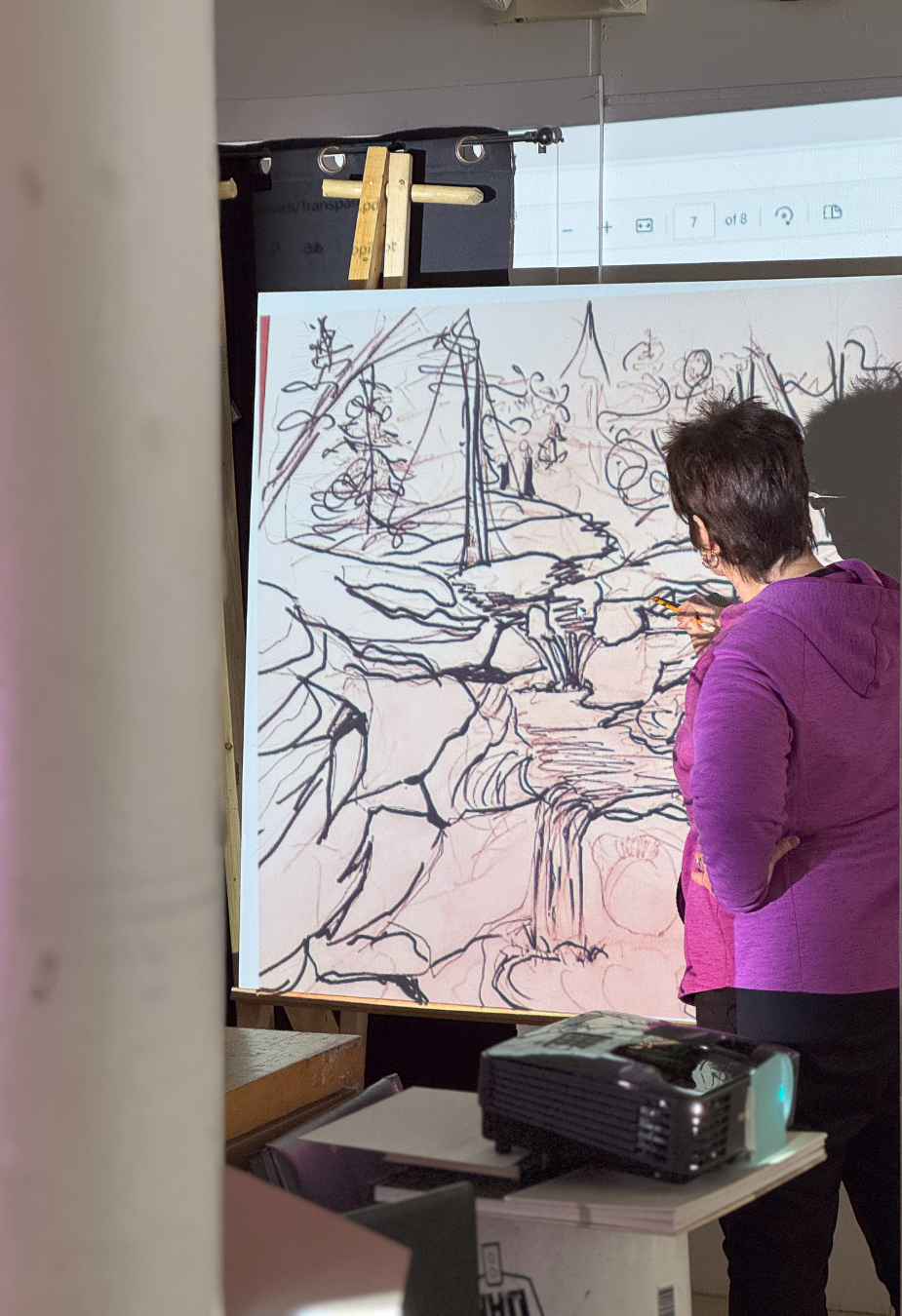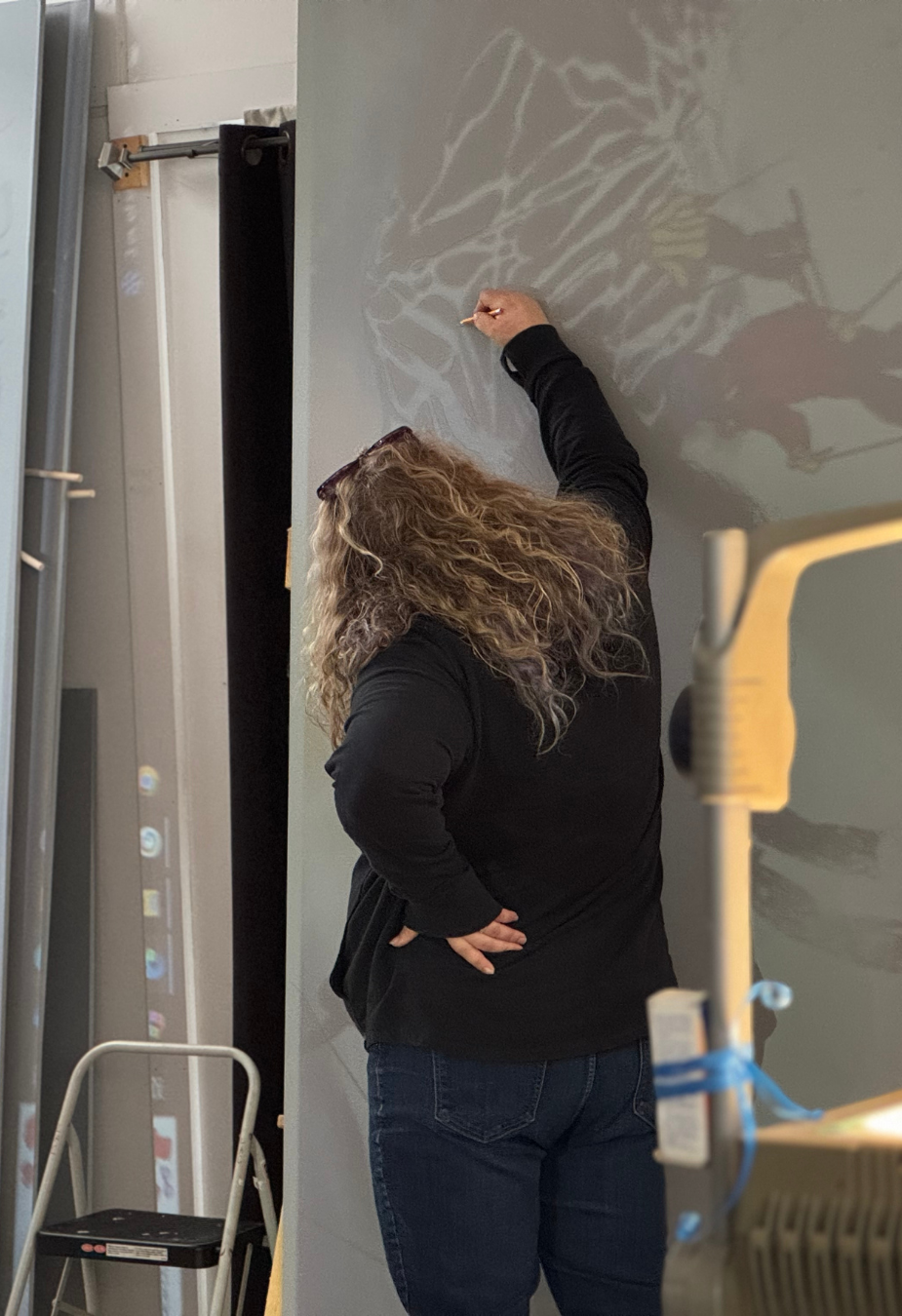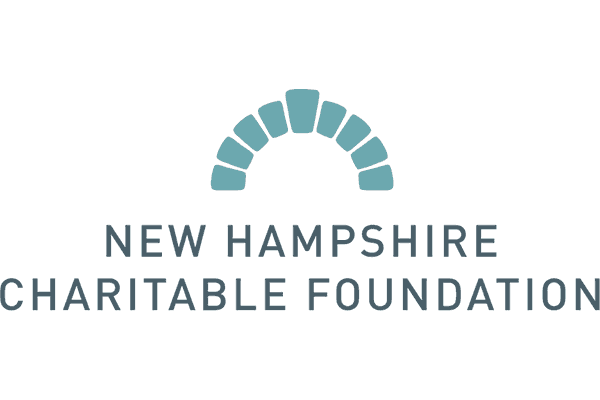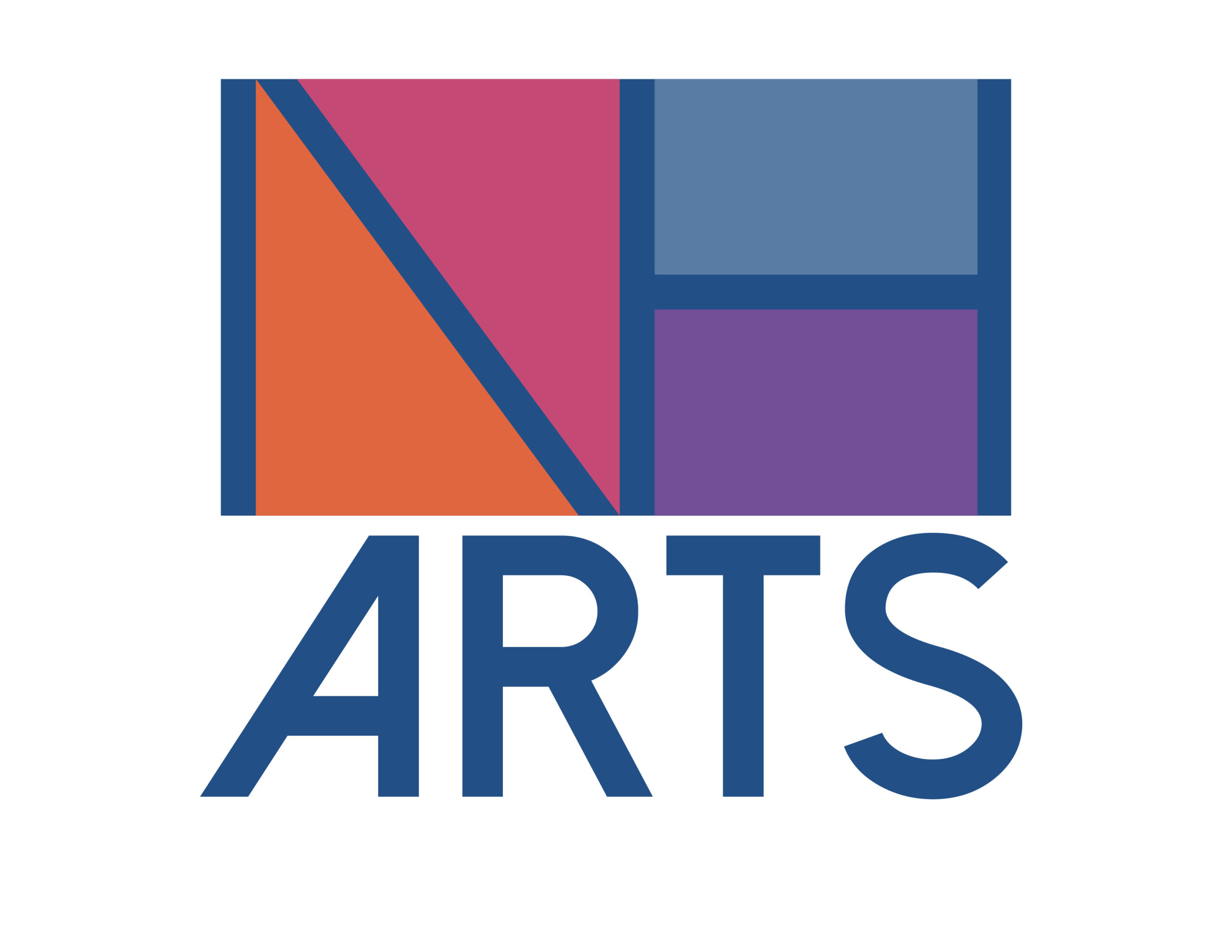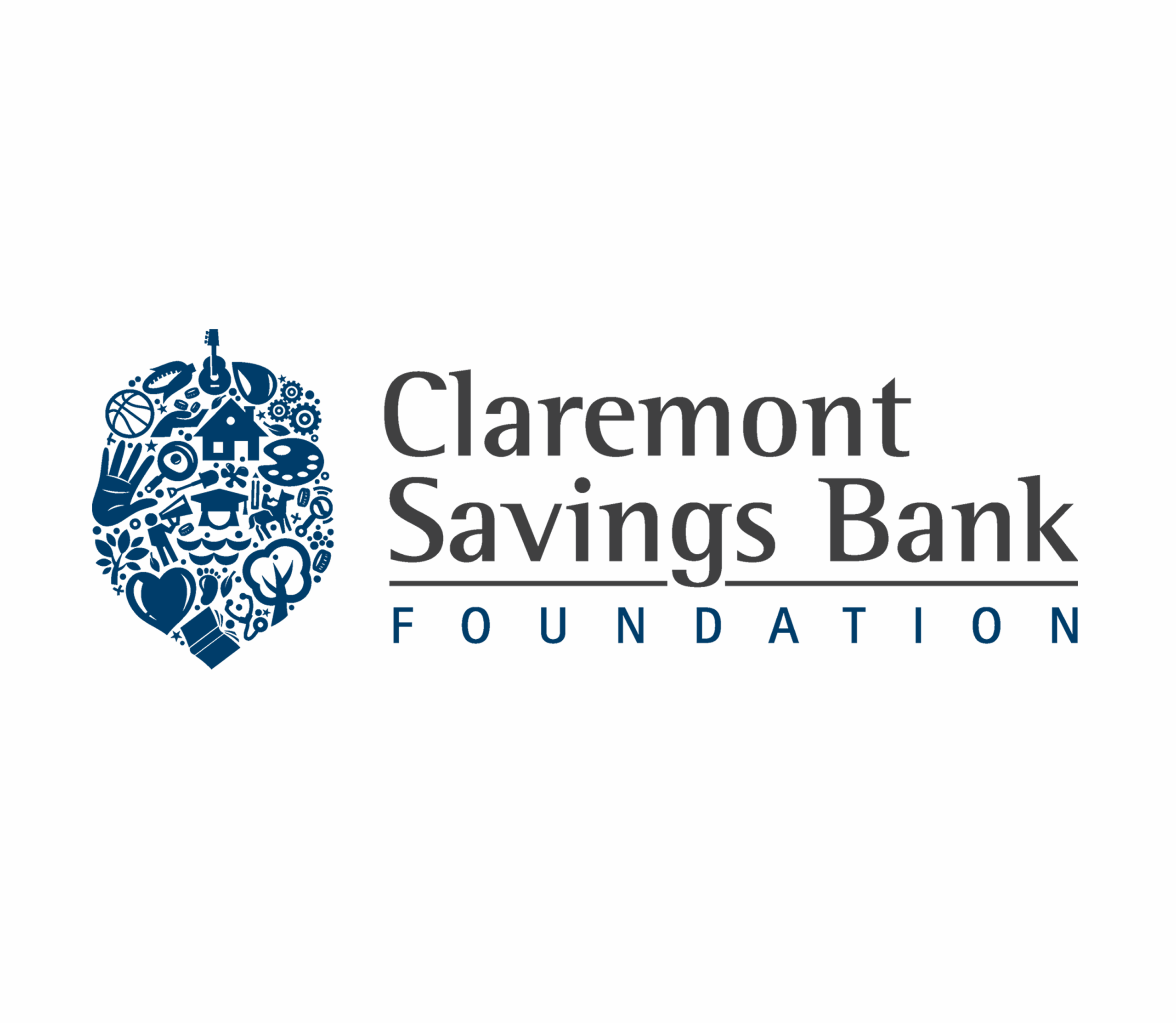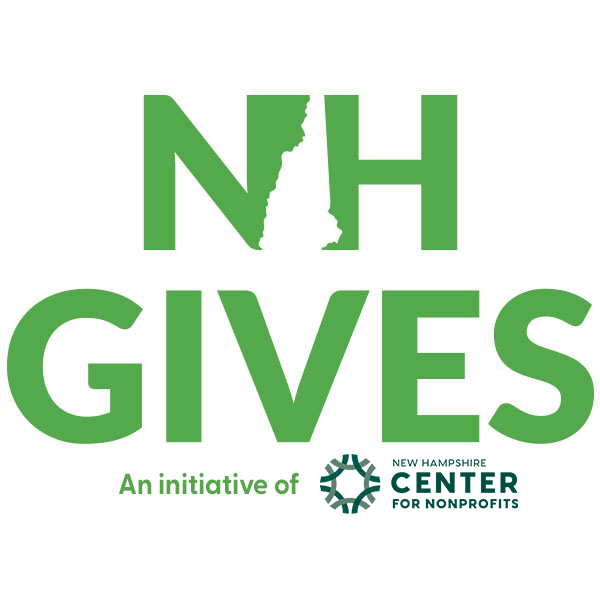
Korn Alley Murals
NEWPORT, NEW HAMPSHIRE
established 2025
Korn Alley Mural Project
EXPLORE the MURALS
Click on the image of each mural to find out more.
The Library Arts Center, in partnership with the Newport Chamber of Commerce, presents the Korn Alley Mural Installation.
Korn Alley, located off Newport’s Main Street between Bar Harbor Bank and Trust and the Gamash Block (WCNL Radio Station) houses 21 murals sized 2×2′, 4×4′ and 4×8′.
Mural themes were crowd-sourced throughout 2024 to reflect what makes Newport, and the surrounding region, special. Dozens of artists from Newport and the greater region applied to the call for muralists in fall of 2024. The call, like all Library Arts Center programs, encouraged professional and amateur artists alike to enter. Entrants provided sample drawings of their ideas for murals using the supplied themes. A panel comprised of representatives from the team developing this project worked to select participating artists.
A mural kick-off retreat gathered the 20 participating artists together at the Arts Center to meet each other, get supplies, and start their murals. Artists took their panels and supplies home and worked through the winter to create their murals. An additional mural was created, under the guidance of Heidi Lorenz, at a variety of community events and in several of Arts Center studio classes to create a community-made mural.
Murals are painted on prepared panels and then installed. This system makes it convenient for a variety of artists to work on the murals from the comfort of their studios, not scaffolding. This system also allows the murals to be spray coated with a UV Ray protective coating to ensure longevity. It also ensures that the murals can be removed or fixed as they age or require repair.
The murals were installed by a small but mighty crew including lead artist Heidi Lorenz and Volunteer Extraordinaire Greg Young.
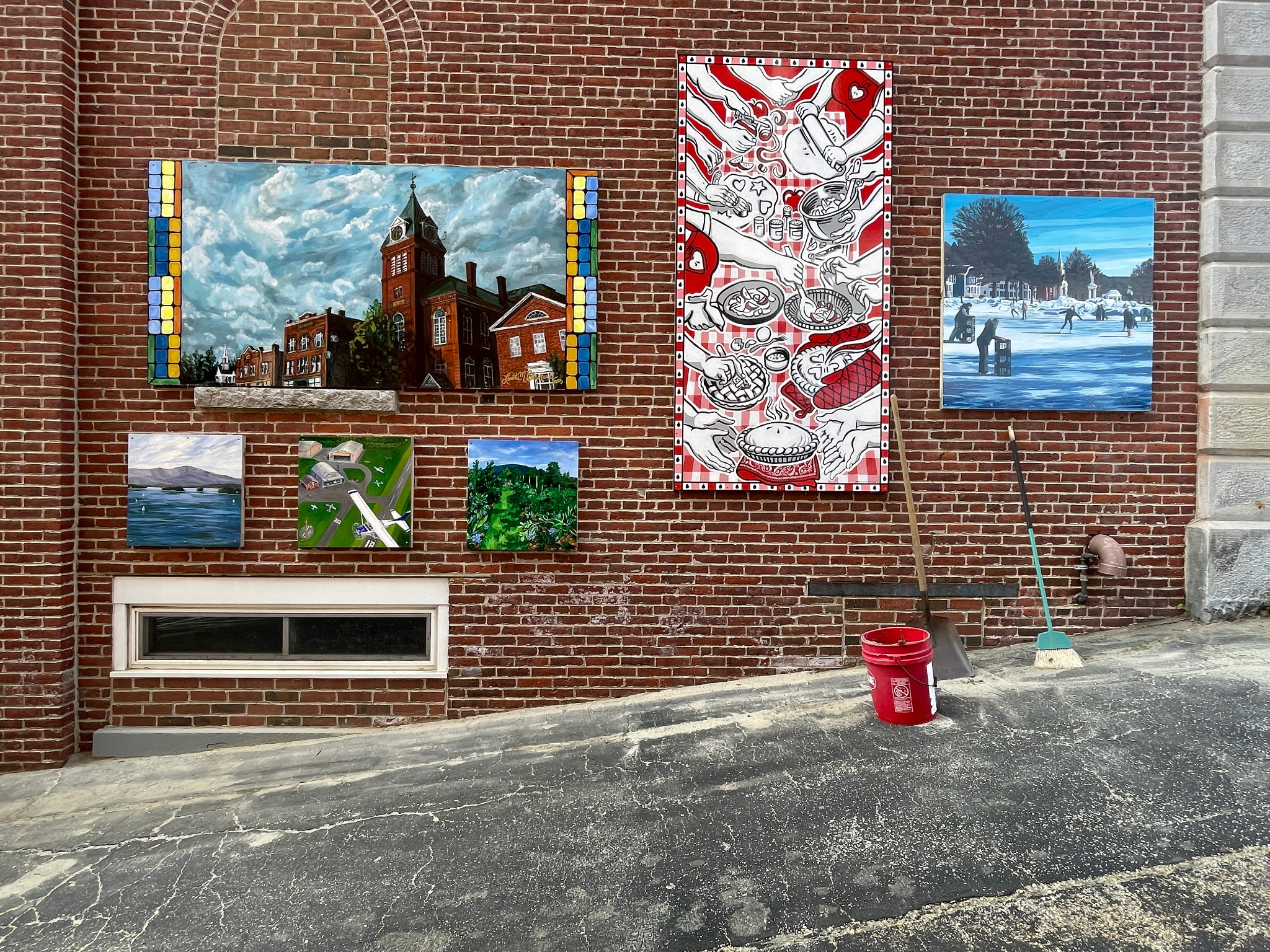
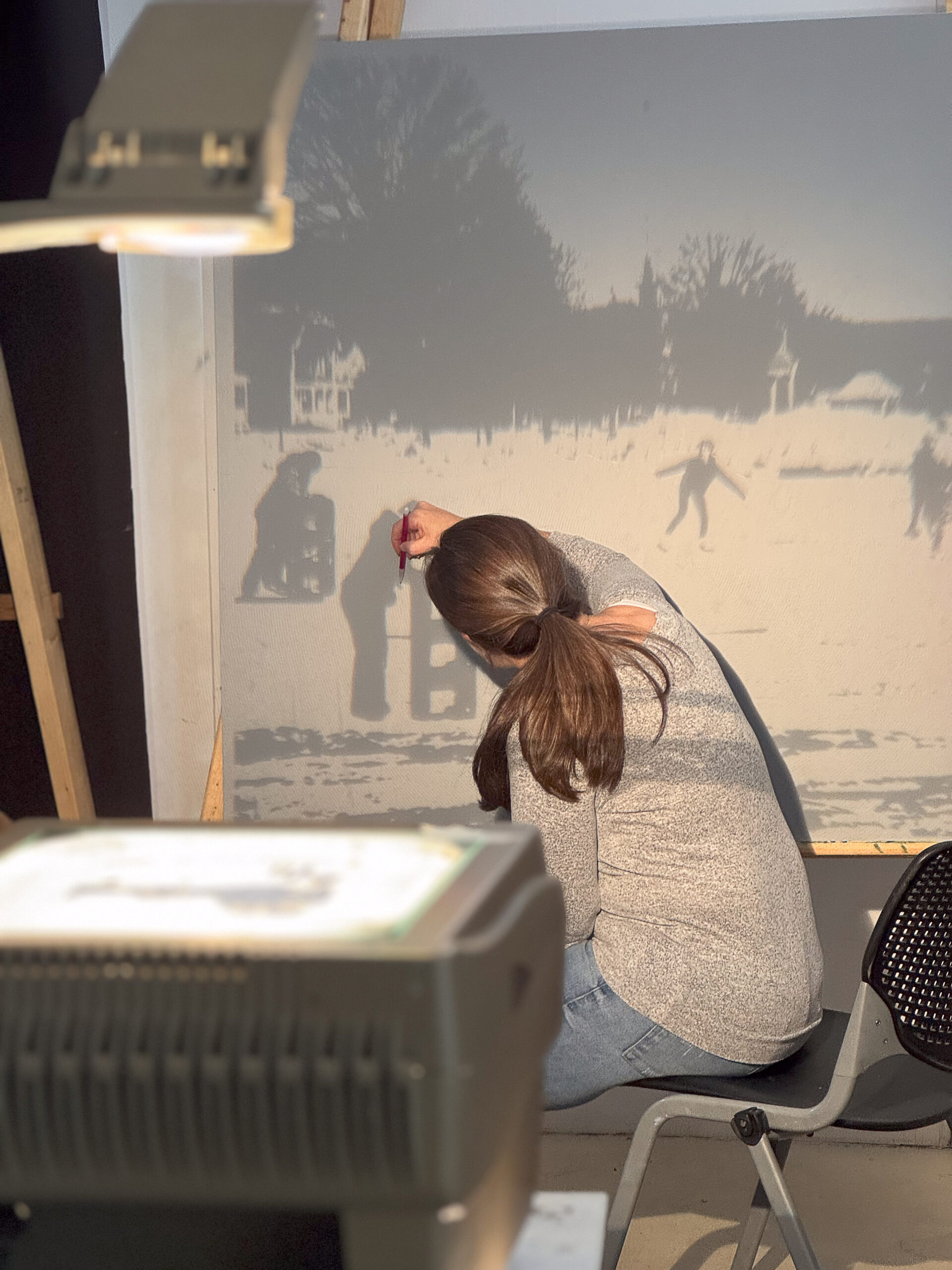
Mural artists gather for a mural retreat in the Library Arts Center studio to begin line work on mural panels in February 2025.
About the Library Arts Center’s Mural Mission
Newport’s beautiful and historic downtown district is one of the town’s greatest assets, with enormous potential to invite new opportunities for commerce and economic vitality to the town. Over the last few years, the community has realized the economic impact of prominent public art pieces in downtown Newport. The Library Arts Center endeavors to build an increased sense of community through the Arts on Main Street program. Public art initiatives, such as a reproduction of one of Newport’s 25-year-old prized heritage murals (that had fallen into disrepair) accomplish just that by reminding us of our shared history. A massive fundraising campaign included a town-wide mural festival and involved multiple community artists. In 2023, a vintage postcard-style mural declaring “Welcome to Newport” was created, depicting prominent local landmarks.
Momentum for public art is growing, and with it comes a lasting impact on our community’s hometown pride, our ability to activate under-utilized spaces in downtown areas, and finally to foster future economic development and activity in ways that serve everyone.
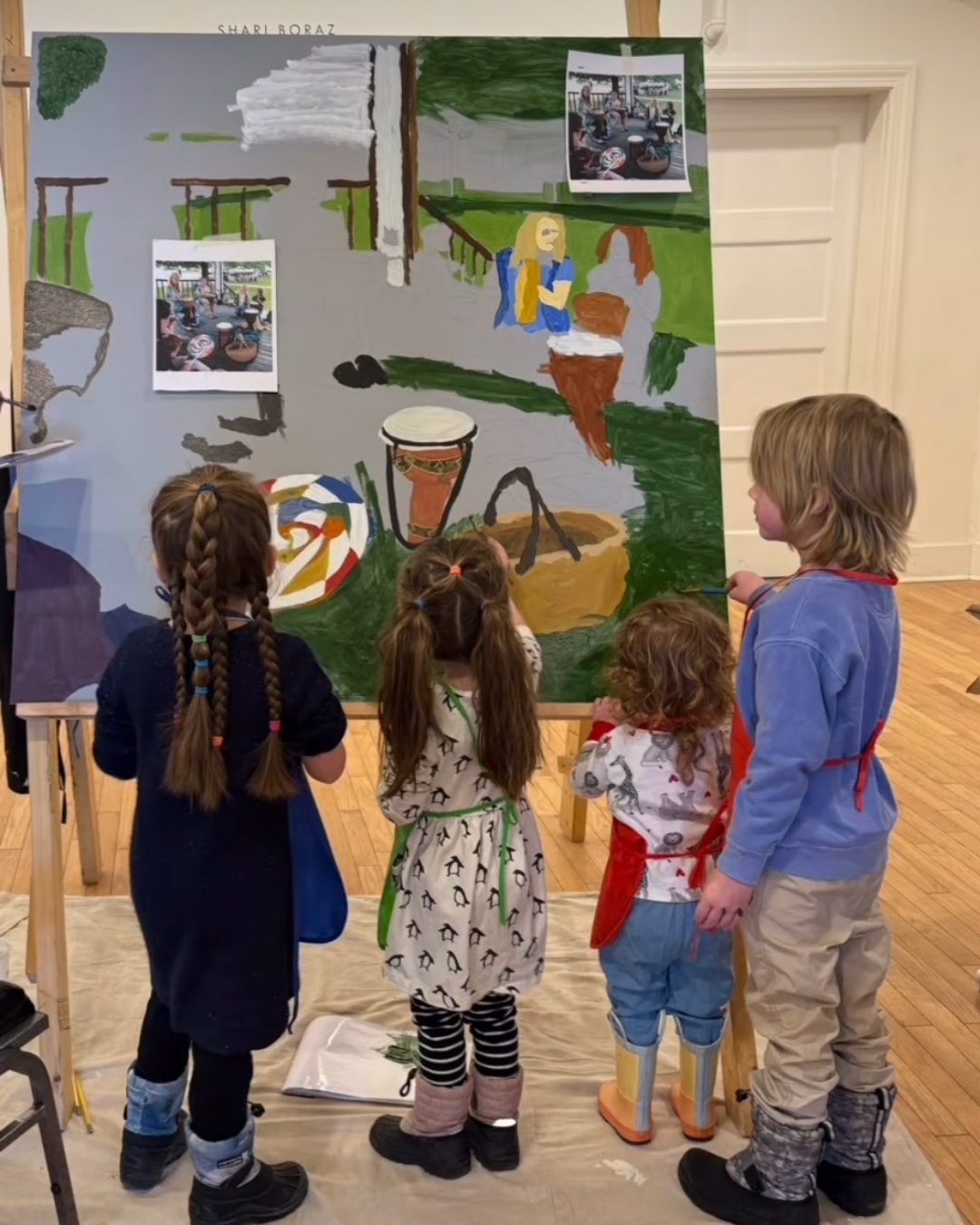
Young Newporters stopped by the gallery to help paint portions of the ‘Community Mural.’ An open invitation was extended to all area residents for them to be part of this special piece of public art.
Mural themes were crowd-sourced over the past year and reflect on what makes Newport, and the surrounding region, a wonderful place to be.
Things we love about Newport and the Surrounding Region
-
Newport’s Parades (the Leapin’ Lena)
-
Parlin Field Airport
-
Newport Opera House
-
Pollards Mills (landscape, swimming, or picnicking)
-
Sugar River (Kayaking/fishing)
-
Fishing/Hunting/wildlife
-
Picking blueberries, raspberries, strawberries, apples at our PYO farms
-
Hiking and Biking on the Rail Trail, Town Forests
-
Apple Pie Crafts Fair
-
Newport Farmer’s Market
-
Campfires
-
Skiing on Mount Sunapee
-
View from Lake Solitude
-
Richards Free Library
-
The Dinner Boat in Sunapee Harbor
Korn Alley Mural Artists
(listed alphabetically)
Mural artists applied for the opportunity to produce a mural as part of this installation with multiple concept entries, and were chosen by the selection committee.
-
Christine Andrews
-
Deborah Bacon
-
Loretta Blackwell
-
Kris Cairelli
-
Debbie Campbell
-
Moriah Churchill-Calkins
-
Jyl Dittbenner
-
Jessica Fligg
-
Kirsha Frye-Matte & Todd Matte
-
Mary Georgilas
-
Kathryn Hanson
-
Karen Little
-
Heidi Lorenz
-
Lissa Malloy
-
Caitlin Mauser Rowe
-
Abigail McCoy
-
Elizabeth Pieroni Schulte
-
Margie Salvatore
-
Patti Warren
-
Community Mural
The Community Mural was painted by community members who were invited by an open call to drop by the Library Arts Center to work collaboratively on the mural, as well as students from the Library Arts Center’s Teen Art Class and it’s Thursday Morning Art Class for Differently-abled Adults.
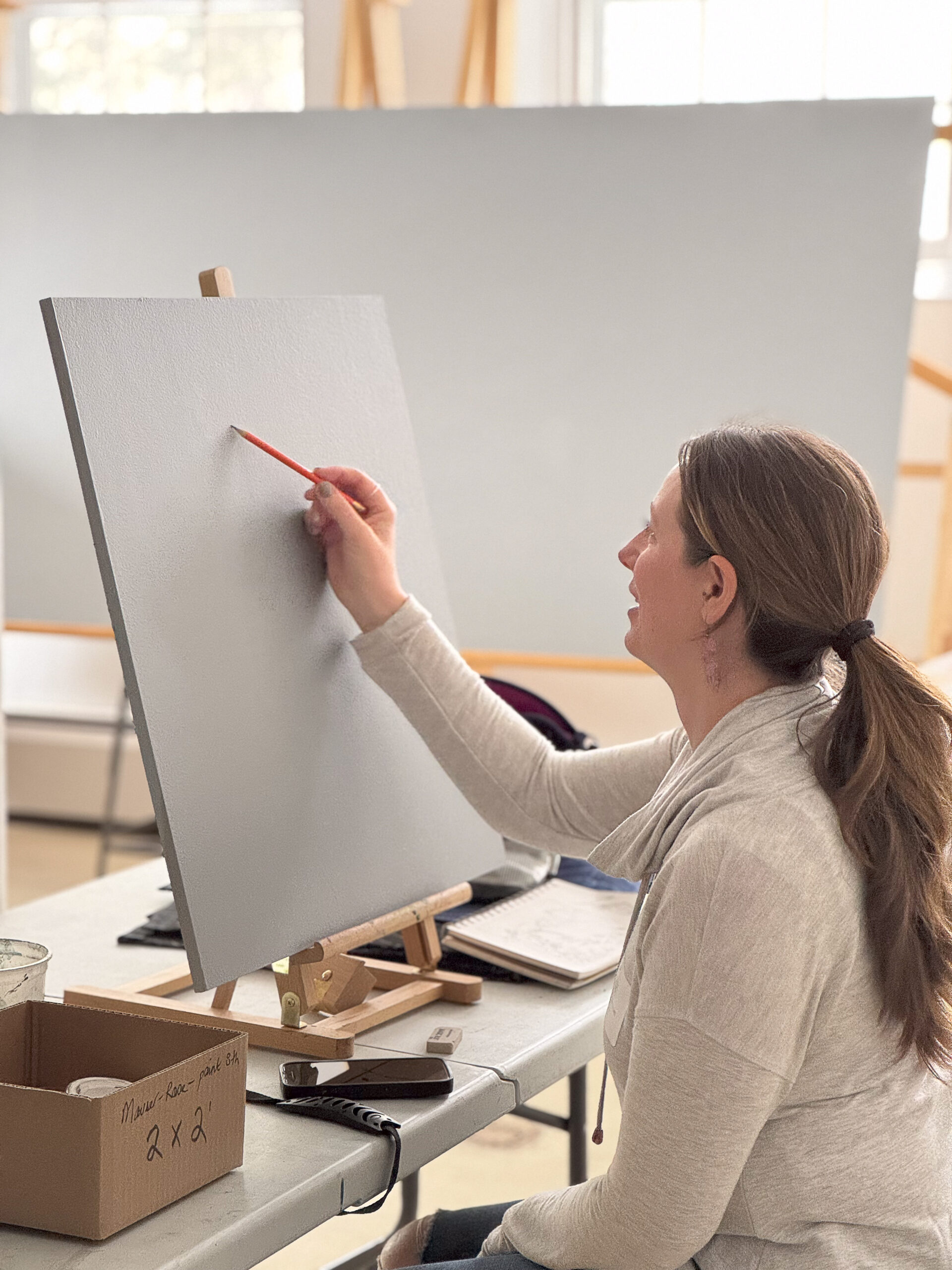
Artist Caitlin Mauser Rowe begins line work on her mural depicting blueberry picking at Bartlett’s Blueberry Farm at the Mural Retreat in the LAC Studio in February 2025.
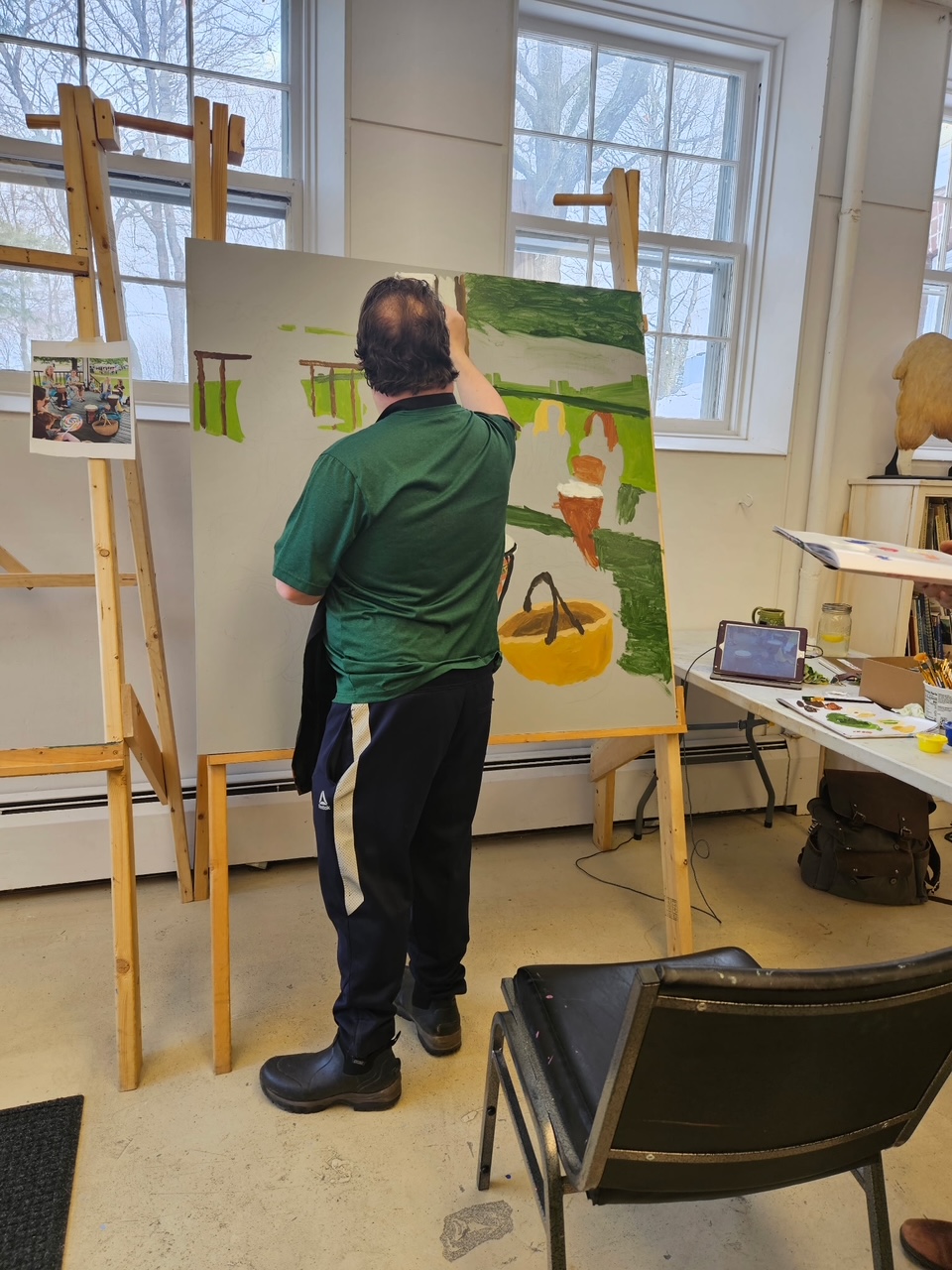
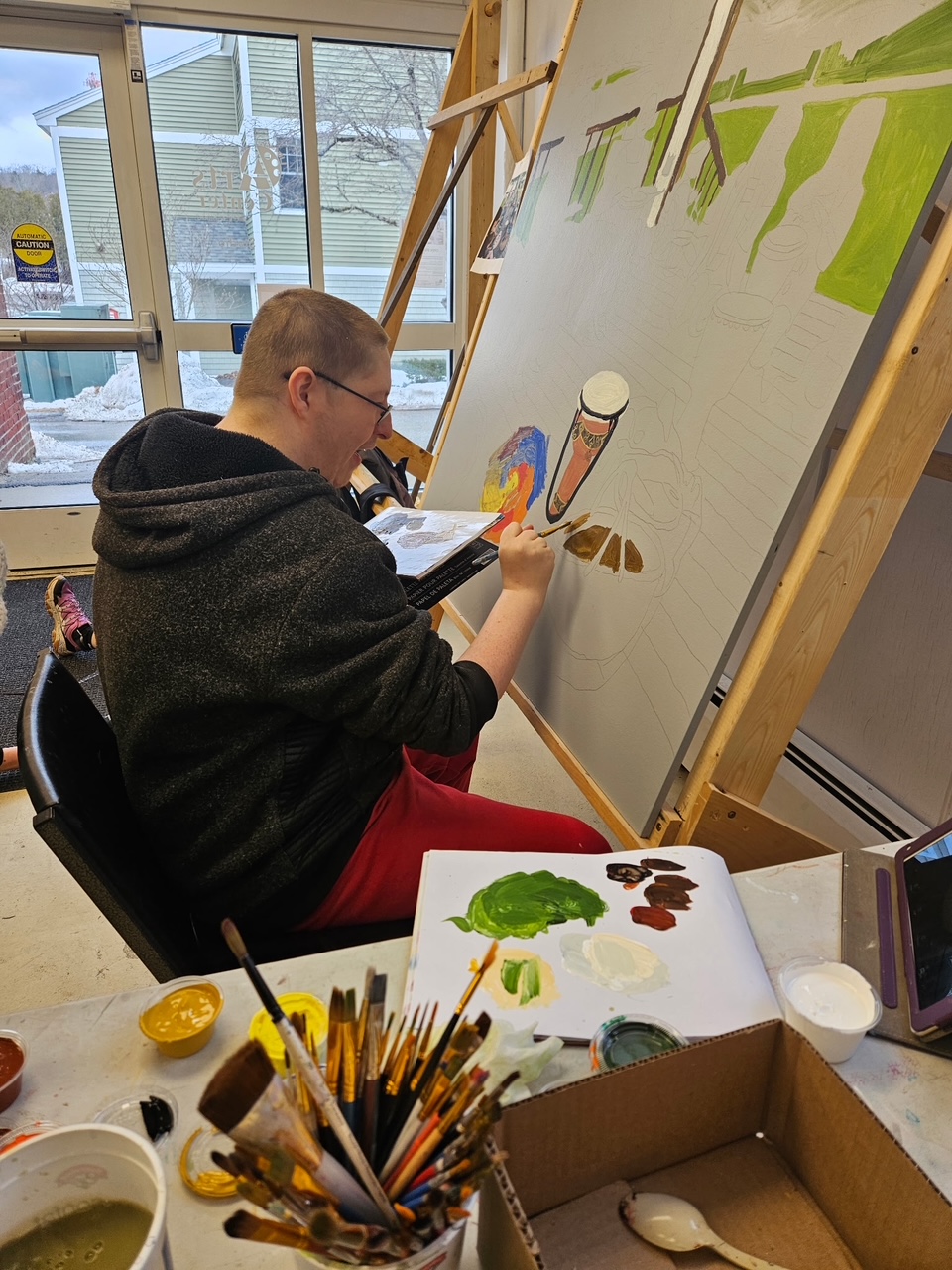
Members of the Library Arts Center’s Thursday Morning Art Class for Differently-Abled Adults help to paint segments of the “Community Mural” that depicts a community drum circle for participants of all ages on the bandstand of the Newport Town Common.
Special thanks to the building owners who partnered with us to make this project possible.
Thank you for sharing your space to help amplify the impact of the Arts in our community!
Gamash Block Building Owners
Jeff and Heidi North
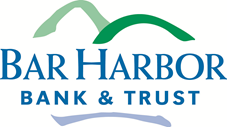
Funding for this project was generously provided by:
Thank you to Andy Warhol Foundation and Helen Frankenthaler Foundation for providing support for this project. This initiative had initially been selected to receive funding through the now suspended NEA Challenge America grant initiative.
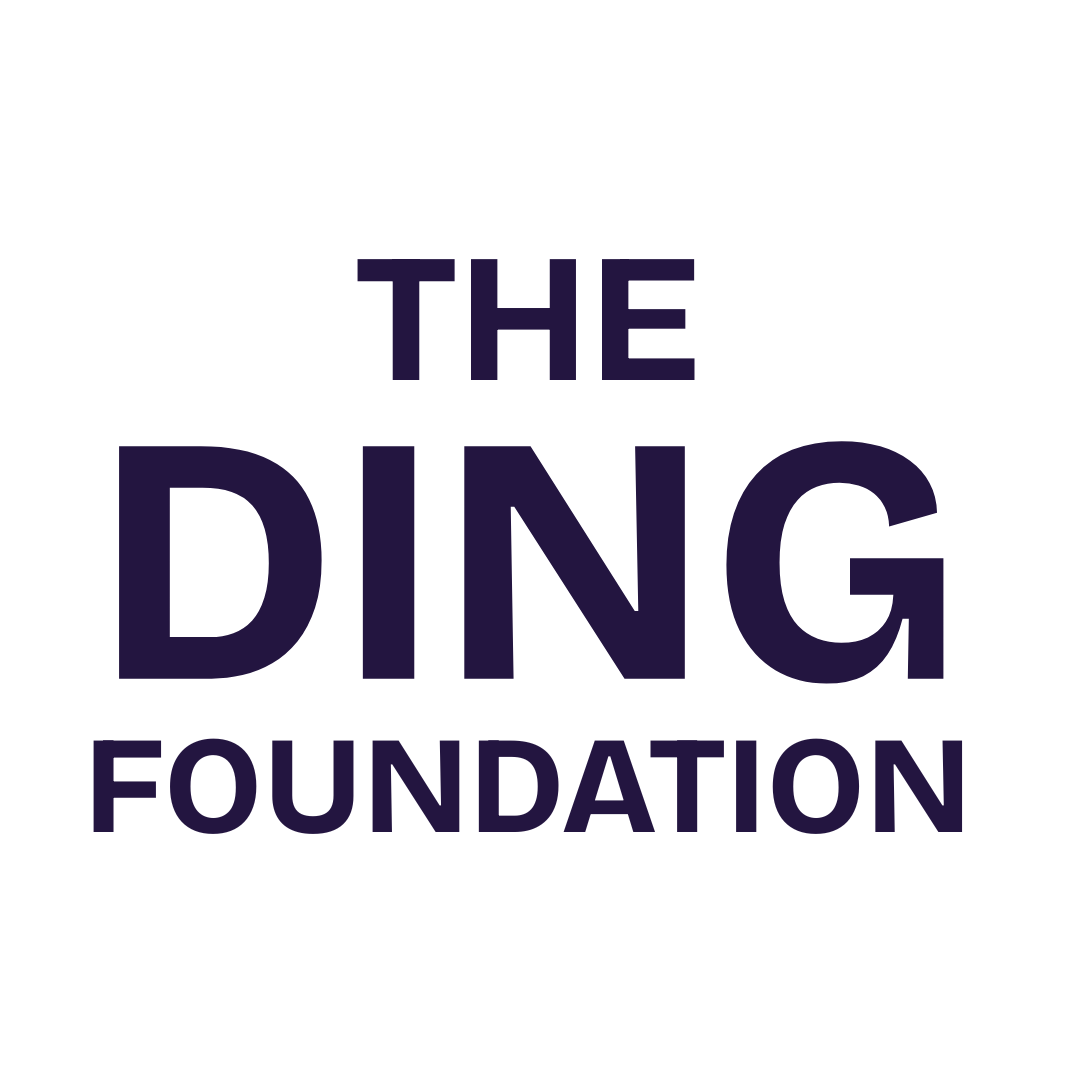
The DING Foundation offered a generous matching grant to the Library Arts Center’s annual membership campaign to directly benefit community murals.
The History of Korn Alley
by project historian, Pam LaFountain
The history of Korn Alley, located off Main Street in Newport between WCNL and Bar Harbor Bank, runs parallel to the life of Franklin Pierce Rowell. Rowell, whose father was from Croydon, was born in Weare, NH on August 26, 1850, where he lived on the family farm until he turned 18. He then went to Manchester where he served as an apprentice to a machinist at the Amoskeag Corporation where he worked in the fire engine shops. Franklin then worked for three years for Blood Locomotive Work also in Manchester before coming to Newport in 1874. His job here was working in a grist mill owned by Dutton and Wright, until he bought the business from W. H. Dutton on March 14, 1877. The business consisted of one single building. The space was also known as “The Rink” as it was used as the town skating rink.
According to advertisements in local newspapers in the late 1800s, Rowell’s Depot Store sold everything from lumber, to cornmeal, bran, oats, and rye. Grass seed, tobacco, teas, spices and eggs were also products sold in that early store. According to one ad, Rowell wanted local eggs: about 200 dozen a week. Middlings, used as feed for livestock; and lime, phosphates and Pacific guano (bird excrement) used as fertilizers, in addition to Pure Paris Green, a form of insecticide, were all Rowell Depot products. By 1891 one could also purchase railroad tickets at Rowells. It also appears that Rowell was willing to exchange his goods for oats, maple sugar and maple syrup, according to an advertisement in local newspapers. Franklin Rowell named the small side street Corn Alley because of his grain business.
Rowell’s Depot Store’s location in Newport was key in ensuring its success as a multi-purpose shop. When goods came into Newport on the Boston and Maine Railroad, carloads of bulk grains were loaded into barrels and drawn most likely by wagons to the store, where it was lifted to the second floor of Rowell’s shop, first by water power. Later electrical lifts replaced water power. Grains came to Newport from as far away as Nebraska. The grains were bagged as they were sold.
Franklin Pierce Rowell also tried to upgrade his business with some new additions. In October of 1877, he put in a steam grist mill so that he could also grind up his grains into flour for his customers. This allowed him to sell flours. In April of 1878, Rowell added a “beautiful street lamp” in Corn Alley. The lamp lit up his store sign and allowed shoppers to come down the alley in the dark hours. Most likely this was not an electric light as this did not come to Newport until about the 1890s. Then in May of 1883, Franklin Pierce Rowell was one of the 25 businesses or personal accounts for the newly established Newport Telephone Exchange.
Twice, fire caused destruction to part of the Rowell business; once in 1898 and again in 1922.
With the introduction of new products, Franklin Rowell believed he needed to change the name of the small alley from Corn Alley to Korn Alley. He wanted his customers to know that he sold more than corn grains. Although advertisements claim the name change was made in early 1900, the term was being used in local newspapers as early as March of 1880.
At the turn of the century, Rowell’s began selling other products like hen feed, cement, bricks, building materials, hardware and paint (Dutch Boy paints). As this new product line increased, the need for grains began to decrease.
As the business continued to prosper, so did the “awe” of Mr. Rowell. Perhaps this began by his business philosophy exhibited in this newspaper quote . . . “ I am bound to make a success of my business by pleasing my customers and doing the fair thing every time. ”( NH Arg. and Spec. 12/27/1878) According to his fellow citizens, Franklin Pierce Rowell became known as “King of Korn Alley” and the “handsome one.” His advertisements in local newspapers included a picture of himself and sometimes were headlined with a poem; thus earning him the title “Poet of Korn Alley.” However, Rowell’s most memorable features will be the fact that Franklin Rowell was most likely the first to own an automobile in Newport and his image of riding around in his red cape and silk top hat with the bright green brim and the red crown was known by most Newporters.
Mr. Rowell will also be remembered for his charitable contributions to the town. Rowell donated to the town, the land now known as “Horsy Park” and Billy Bates Field as a playground for Newport’s children; a public parking lot off South Main Street; the equipment to light the first town clock and the still present watering trough on Main Street that bears his name.
Other businesses that were located in Depot Square, off Korn Alley were Florence Downing’s “The Town Shop” which sold hosiery and was located in the Gamash Block; Fred’k Gamash’s automobile business office in 1916 (this was most likely the first automobile business in Newport) ; and Jesse Rowell’s National Life Insurance Company of Vermont. Fred’k Gamash built the concrete sidewalk down Korn Alley.
When Franklin Pierce Rowell died in 1926, his illustrious career included grain dealer, police judge, legislative politician, officer of a local woolen mill, and banker. He was also an active member of the Congregational church, a tea-totaler and a pitch champion. After his death, Rowell’s business was incorporated under the name Rowell Brothers. In 1931, they bought the Gile grain business and moved the grain portion of their business across the Depot Square. The brothers later sold this branch to Wirthmore Feed Co. In 1958, Rowell Brothers purchased the south end of Depot Square including the railroad passenger station and the open space became a free parking area.
Rowell Brothers remained in business until 1976 and in 1982 the property was purchased by Lake Sunapee Bank and the buildings (the business had grown at its height to six warehouse buildings, sales room and office space) were razed.
